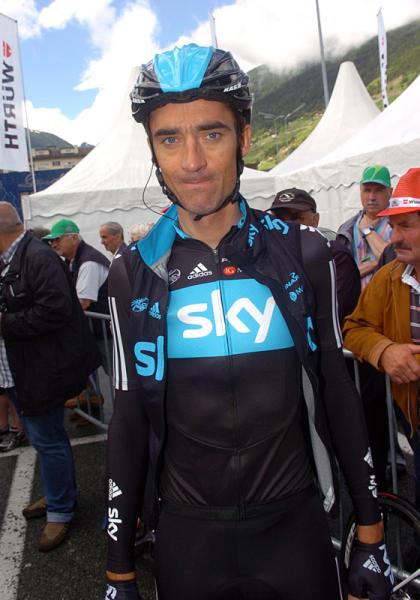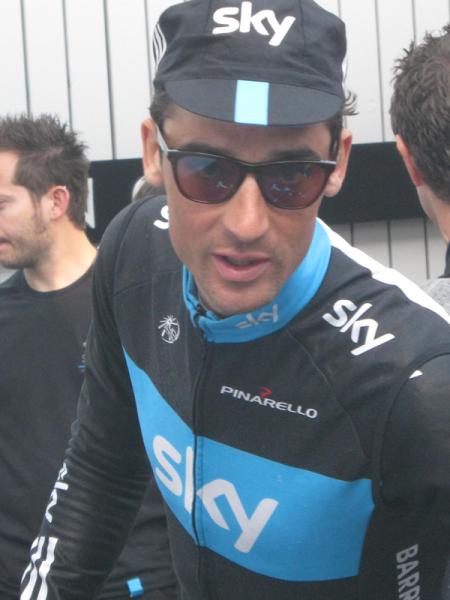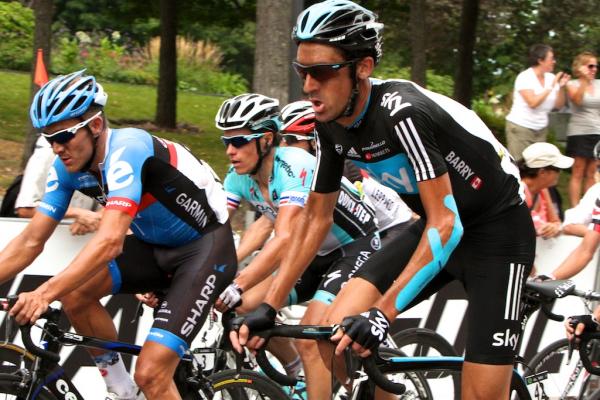Michael Barry confesses to doping
UPDATE: Cycling Canada recognizes USADA sanctions



After being named in the USADA statement regarding the US Postal Service team doping conspiracy, Michael Barry has also confessed to doping and confirmed he has testified as part of the investigation in a statement on his personal website michaelbarry.ca.
Barry said he realised that doping had become an endemic problem in professional cycling soon after joining the US Postal Service team in 2002. He claimed he stopped doping in 2006 –when he joined the T-Mobile team and became a proponent of clean cycling through his writing and interviews.
The Canadian Team Sky rider has already announced his retirement and competed for the last time with Team Sky at the GP de Montreal on September 9.
Barry’s statement:
“Cycling has always been a part of my life. As a boy my dream was to become a professional cyclist who raced at the highest level in Europe. I achieved my goal when I first signed a contract with the United States Postal Service Cycling team in 2002. Soon after I realized reality was not what I had dreamed. Doping had become an epidemic problem in professional cycling.”
“Recently, I was contacted by United States Anti-Doping Agency to testify in their investigation into the use of performance enhancing drugs on the United States Postal Service Team. I agreed to participate as it allowed me to explain my experiences, which I believe will help improve the sport for today’s youth who aspire to be tomorrow’s champions.”
“After being encouraged by the team, pressured to perform and pushed to my physical limits I crossed a line I promised myself and others I would not: I doped. It was a decision I deeply regret. It caused me sleepless nights, took the fun out of cycling and racing, and tainted the success I achieved at the time. This was not how I wanted to live or race.”
Get The Leadout Newsletter
The latest race content, interviews, features, reviews and expert buying guides, direct to your inbox!
“In the summer of 2006, I never doped again and became a proponent of clean cycling through my writing and interviews.”
“From 2006 until the end of my career in 2012, I chose to race for teams that took a strong stance against doping. Although I never confessed to my past, I wrote and spoke about the need for change. Cycling is now a cleaner sport, many teams have adopted anti-doping policies and most importantly I know a clean rider can now win at the highest level.”
“I apologize to those I deceived. I will accept my suspension and any other consequences. I will work hard to regain people’s trust.”
“The lessons I learned through my experiences have been valuable. My goal now is to help turn the sport into a place where riders are not tempted to dope, have coaches who they can trust, race on teams that nurture talent and have doctors who are concerned for their health. From direct experience, I know there are already teams doing this but it needs to be universal throughout cycling.”
“Progressive change is occurring. My hope is that this case will further that evolution.”
UPDATE: Reaction from Cycling Canada
Cycling Canada, the governing body of competitive cycling in Canada, today in a statement fully recognized the sanctions levied by the US Anti-Doping Agency (USADA) regarding Canadian Michael Barry's admission of doping as part of the US agency's investigation into Lance Armstrong and doping practices at the US Postal Service team.
As detailed in USADA documents, Barry accepted a six-month ban beginning September 10, 2012 as well as the disqualification of his competitive results obtained from May 13, 2003 through July 31, 2006. Barry admitted to using erythropoietin (EPO), human growth hormone (hGH) and testosterone while a member of the US Postal Service Cycling team in 2003 and 2004 as well as during 2005 and 2006 as part of the Discovery Channel Cycling Team.
"Once the specific USADA information related to Michael Barry's admission of the use of prohibited substances is reviewed Cycling Canada will be addressing matters related to the disqualification of results earned during the specific period for events under the sanction of the national body," read a statement from Cycling Canada.
John Tolkamp, president of Cycling Canada, provided provided this reaction regarding Barry's doping admission:
"The sport of road cycling has come a long way in the last five to seven years to clean-up the sport. The short term impact of the launch of the Biological Passport program has resulted in a much cleaner sport - as we now know it today, and today we can witness that the culture of the sport of road cycling is rapidly changing towards a clean sport.
"We strongly urge the International Cycling Union (UCI) to continue and step-up its efforts to clean-up the sport. We applaud the World Anti-Doping Agency (WADA), the Canadian Centre for Ethics in Sports (CCES) and in this case the USADA for their investigation in this matter. We encourage the UCI to follow through on its proposed ‘Truth & Reconciliation' program that would provide amnesty for other riders to come forward and lay bare all the facts related to the use of prohibited substances and practices to further the goal of having a drug-free sport.
"We will continue to enhance our efforts to educate around doping in our sport so that all athletes compete on a fair and equal basis. Besides educating our athletes we will continue to work with the UCI, CCES and other partners to improve processes and programs to ensure fair sport in Canada."